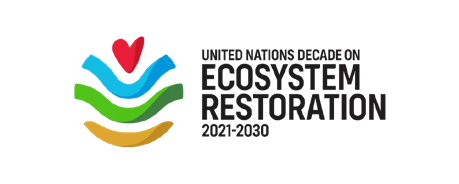

Be Nature Positive - Plant the Right Trees Now
Empower Ecosystem Restoration with Just USD$1


Forest Friends Certification
Championing Ecosystem Restoration and Biodiversity Conservation for a Nature Positive Sustainable Future
The Forest Friends Certified seal is granted to organisations committed to fostering positive impacts for nature through ecosystem restoration following the standards of the United Nations Decade for Ecosystem Restoration.
The seal is a pioneering certification developed by Green Initiative that is designed to actively support reforestation efforts that contribute to science-based ecosystem and wildlife restoration, ultimately transforming lives by nurturing biodiverse forests.
DISCOVER THE Best FOREST FRIENDS CERTIFIED PARTNERSHIP SEAL FOR YOUR BUSINESS
Accelerator
Organizations dedicated to accelerating ecosystem and wildlife restoration for nature positive impact projects promoting and supporting the involvement of more organizations, fostering a collective effort.
Partner
Organizations deeply committed to long-term ecosystem and wildlife restoration that are actively engaged in nature-positive impact projects.
Participant
Individuals or organizations dedicated to contributing to ecosystem and wildlife restoration for nature’s positive impact through tree planting initiatives.
Mitigation for Businesses
Ignite Change.
Elevate Your Company's Sustainability Initiatives in 2024.
Climate action for your business
MAKE A REAL IMPACT
ENGAGE YOUR COMPANY IN NATURE POSITIVE CLIMATE ACTION NOW!
Do you want to visit your planting sites?
We can help you organize the trip of a lifetime! Visit the Adidas planting site in Peru or the Columbus State University planting site in Costa Rica.
We are Proud of Supporting World Class Initiatives for Climate Action






Frequently Asked Questions
What is Nature Positive Action?
Nature Positive Action refers to actions taken by organizations, businesses, and individuals to restore, protect, and enhance nature in order to achieve a net positive impact on the environment. Green Initiative offers Nature Positive Action services to help businesses and organizations achieve their sustainability goals through biodiversity conservation and habitat restoration projects.
Why is Nature Positive Action important?
Nature Positive Action is important because it helps to address the urgent global challenges of climate change, biodiversity loss, and environmental degradation. By restoring and enhancing nature, we can help to mitigate the impacts of climate change, protect biodiversity, and support the long-term health and well-being of ecosystems and communities. Green Initiative’s Nature Positive Action services help organizations and businesses contribute to these efforts.
What are some examples of Nature Positive Action?
Examples of Nature Positive Action include:
- Planting trees and other vegetation to sequester carbon, restore degraded land, and provide habitat for wildlife. Green Initiative’s Reforestation and Habitat Restoration services support these types of projects.
- Supporting conservation efforts and protected areas to preserve biodiversity. Green Initiative’s Biodiversity Conservation services help businesses and organizations support these types of projects.
- Creating green spaces in urban areas to improve air and water quality and enhance community well-being. Green Initiative’s Urban Greening services support these types of projects.
What are the benefits of Nature Positive Action?
The benefits of Nature Positive Action include:
- Helping to mitigate climate change by sequestering carbon and reducing greenhouse gas emissions
- Supporting biodiversity and ecosystem health
Improving air and water quality - Enhancing community well-being and quality of life
- Providing economic benefits through sustainable resource use and ecotourism
Green Initiative’s services help businesses to achieve these benefits by developing and implementing strategies to achieve environmental sustainability and Nature Positive Action.
Absolutely, all sites are located within tourism destinations areas. The Green Initiative can connect you with local tourism operators who can assist in making your visit an unforgettable family experience.
Your contribution to Forest Friends encompasses a range of impactful initiatives aimed at environmental conservation and nature positive development. Here’s a breakdown of what you are paying for:
1. Reforestation Projects:
Your funds directly support our global reforestation projects, strategically chosen to address deforestation, enhance biodiversity, and restore ecosystems.
2. Tree Planting and Maintenance:
A significant portion of your investment goes into the meticulous process of planting trees. This includes the selection of suitable tree species and the ongoing maintenance necessary for their healthy growth.
3. Community Empowerment:
We actively involve local communities in our projects. Your investment contributes to creating job opportunities, empowering local communities, and ensuring their active participation in the sustainable management of natural resources.
1. Transparent Reporting:
We believe in transparency. Regular and detailed reports on the impact of your contributions, including the number of trees planted and areas restored, are provided to keep you informed about the positive effects of your support. The information will be available at https://certificates.greeninitiative.eco/landing.php
At Green Initiative we help our clients mobilize resources for climate financing, in addition to complying with climate regulations for international trade, improving the efficiency of their operations, reducing costs and adding value to their products and services, connecting them with the París Climate Agreement, and with the United Nations Sustainable Goals.
At the Green Initiative we have the necessary know-how to enable our clients to lead this transformation through actions that generate positive impacts for their organizations, as well as for the planet.
- we support your business full cycle of climate action, going beyond.
- science-based methodologies and tools.
- experience in various industries and countries.
- we are accredited as a support resource for United Nations Climate Change, GCOM, CDP, OnePlanet, Global Footprint Network, and UN Decade for Ecosystems Restoration.
- we provide a cost effective value proposition.
A Climate Certification is a formal endorsement of your organization’s work in progress and commitment to shift towards a low carbon emissions economy achieving net zero emissions by 2050 or before.
Green Initiative Climate Certifications offer direct benefits to increase your business competitiveness and sustainability performance, among which the following stand out:
- climate leadership
- climate action at the core of the business
- mobilize climate financing (loans and grants)
- compliance with international climate trade standards
- support innovation through climate-friendly products and services.
- aligns your business to the UN Sustainable Development Goals
Green Initiative Carbon Neutral Certification A carbon neutral certification demonstrates an organisation’s commitment to decarbonisation, and the neutralisation of remaining impact through the support of environmental projects.
- Carbon Neutral Certified demonstrates that your business is committed to decarbonisation through clear science based mitigation targets, and has conducted the off-setting of remaining impact purchasing carbon credits that reduce and capture greenhouse gases from entering the atmosphere (such as renewable energy, energy efficiency and forest conservation projects).
- Climate Positive Certified means that your business climate action has gone beyond neutrality, actually creating environmental and climate benefits by removing additional carbon dioxide from the atmosphere through actions to protect, sustainably manage, and/or restore ecosystems.
We kneet the right sock for your shoe. In the travel industry, Green Initiative provides solutions for tourism operators offering carbon-neutral services as part of their post COVID recovery strategy.
Companies such as My Costa Rica and Inkaterra offset emissions with certified compensation projects and sponsor forest recovery.
Machu Picchu, the first CarbonNeutral Certified wonder of the world, is engaging tourists to offset their carbon footprint.
Adidas is sponsoring ecosystem restoration in a land the size of one football field in the Amazon; they are planting trees as part of their carbon mitigation goals.
REVERT is offsetting remaining emissions supporting climate solutions, and sponsoring climate positive action.
At Green Initiative, we provide funding for two complementary types of climate change mitigation solutions: one is planting native trees for ecosystems restoration, and the other is supporting natural and technology driven solutions through carbon credits.
Recently planted trees need to be nurtured and protected for years to provide environmental services such as carbon sinking. Planting a tree is a matter of having empathy with life on earth. Today, more than ever, we need to connect with global challenges such as climate change and biodiversity loss, and planting trees, under the scope of ecosystem restoration, provides a fundamental tool for reverting the natural climate crisis we are facing.
To conduct the carbon off-setting of your business the most consist approach to do so is through carbon credits.
Certificate for Emission Reduction, Certified Carbon Offset, or simply Carbon Credit is a certificate generated by an accountable body that represents reducing or removing one ton of CO2 from the atmosphere.
These certificates aim to monetize the climate benefits embedded in specific projects and provide them with an additional revenue stream.
A Carbon Credit enables you to offset your business’s unavoidable carbon emissions by funding projects worldwide that avoid, reduce or capture greenhouse gases. A Carbon Credit is a part of an international mechanism endorsed by the United Nations that allows your business to claim carbon neutrality.
There are different levels for climate change mitigation results. Within your business, you should prove impact by monitoring your Key Climate Performance Indicators. You should be able to do so simply by conducting your carbon footprint assessment annually using Green Initiative Carbon Management Tool.
From a carbon footprint offsetting perspective, your business will prove to have compensated its carbon emissions through the provision of a Carbon Compensation Certificate. This certificate provides complete detailed information of the source (VERRA, Gold Standard, or CDM), type of credits (carbon reduction, avoidance, siking, or removal), and the specific market ID number of the credits used by your business to claim carbon neutrality.
Monitoring tree planting for ecosystems restoration is done by combining on the ground supervision with high-precision satellite images. Green Initiative provides one of the complete monitoring services available, effectively comparing the baseline situation with restoration performance.
We only work with tree-planting partners who plant trees responsibly. In addition, our partners are regularly audited by third parties, and publish internal reports for us with updates and data from our planting sites. Check out this performance monitoring report for our Costa Rica tree planting project.





